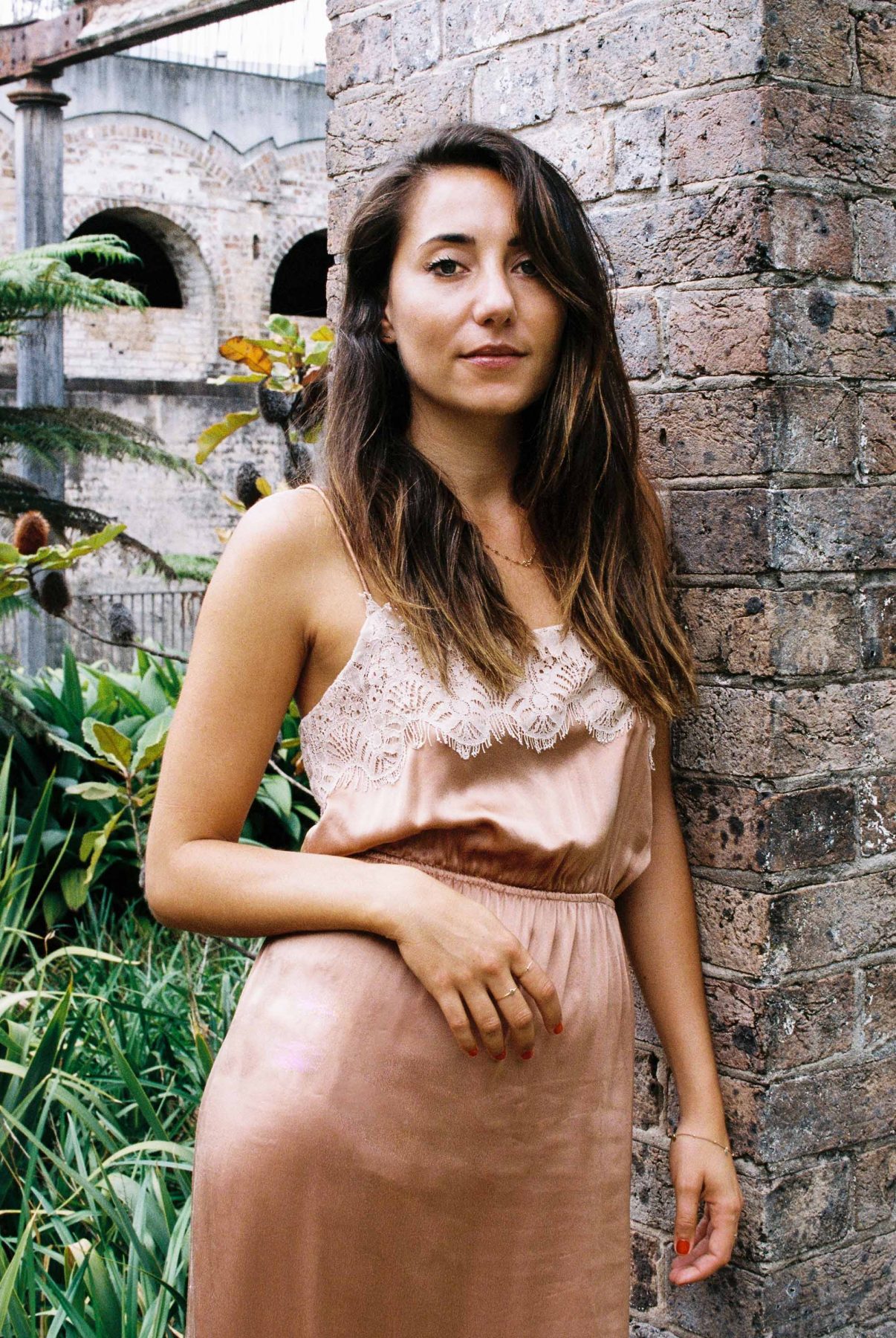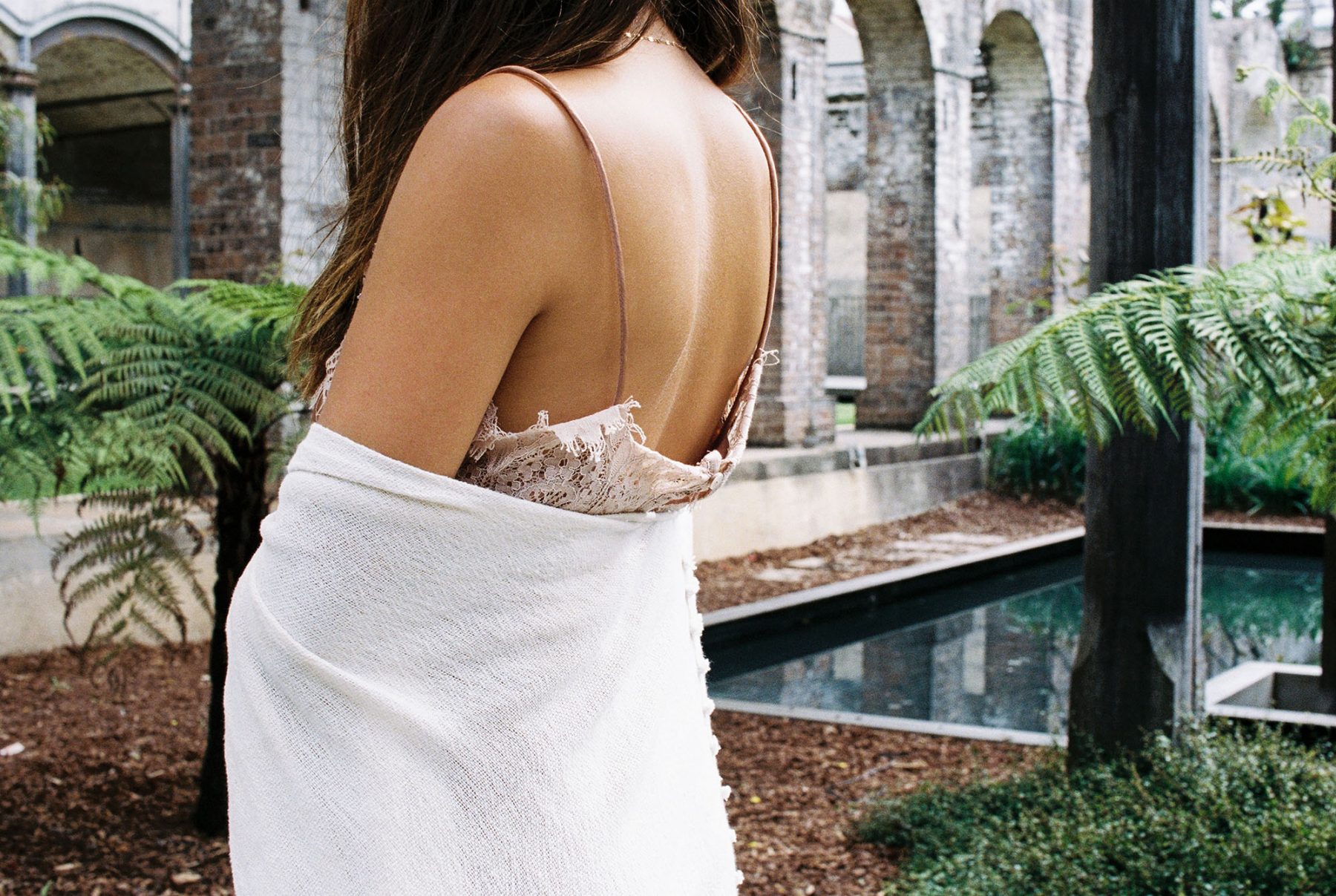
Profile
Valentina Zarew
Valentina is co-founder of The Bravery, founder of Newromantic and sustainability manager at H&M Australia & New Zealand.
Intent is interested in the psychology of fashion and people’s relationships with clothing. How would you describe your own relationship with clothing; has it evolved over the years?
I’ve always had a genuine connection with my clothing, and this can be attributed to a range of factors both past and present. Growing up as one of seven children and spending a lot of time being raised by my Russian immigrant grandparents was one of them. Both my baba and mother spent a lot of time making clothes for us. We always had a sewing machine at home and it was used regularly to make socks, blankets, cardigans, dresses; you name it. My curiosity and appreciation for making clothing started there. I have to admit, I fumbled around with the sewing machine my mother gifted to me and tailored a lot of secondhand clothing, some of which I inherited from my sisters when I moved out of home. Let’s just say their cooking skills rubbed off on me more than sewing.
Being one of five girls in my family, I was constantly rummaging through wardrobes, much to the dismay of my sisters. I was fascinated by the way we use our clothing choices to express our personalities. I explored this is many ways, including through my work and study. For instance, I directed a play and worked with my actors on an inclusive approach to costume design: segmenting them into groups and giving them newspapers to work on the design of each character’s costume as a way of exploring their personality.
Currently my wardrobe consists of both old and new pieces, some of which I have held onto for generations. When dressing I generally choose timeless pieces that I can mix and match with each other, or new pieces to express how I am feeling that particular morning.
How have your personal values shaped your work?
When I was 17 I moved to Brazil before studying at university. During my time there I worked in a favela, and gained a deeper understanding of the basic principles of economics—which became one of my favourite topics at university—and the way that policy, corporations and NGOs have a major impact on societies.
Upon returning and after much deliberation, I decided to undertake a commerce/marketing degree instead of the arts, which has since become a hobby. I wanted to understand the impact of policies, corporations and NGOs on society, and give myself the tools to be able make a positive impact in my day-to-day work.
Valentina Zarew
“Sustainability is an interesting discipline, and one that will continue to evolve and be shaped by new technologies and pressures.”

What led you to start exploring issues relating to ‘sustainability’, and what has changed since you first began this journey?
Sustainability is an interesting discipline, and one that will continue to evolve and be shaped by new technologies and pressures. I have to say, the journey started for me when I was growing up, with my grandparents and within the context of my family. Learning how to grow our own food and make our own clothing, that sense of community—it really set these parameters for me. The world is changing though, and industry is developing so quickly that we must now look to new innovations to tackle problems like resource scarcity.
You were a co-founder of sister PR agency to Republic of Everyone, The Bravery, which is “dedicated to working with businesses that have a positive social and environmental impact on our world”. Which business models or ways of approaching sustainability have you found particularly exciting and why?
I am really passionate about innovation and collaboration. Sustainability is an industry that is generally open source and non-competitive. A perfect example of this is the work that the Sustainable Apparel Coalition is doing to bring industry together.
In the interest of scaling solutions and addressing systemic challenges, the industry recognises the need to work together and try new things, and to push boundaries—in a supportive and collaborative environment.
Has there been any progress over the past few years (throughout the garment industry or society as a whole) that has been heartening to you on both a business and personal level?
Yes, I believe that public awareness of important topics like climate change is growing, with more and more people feeling empowered to play their part in their own personal way. Whether it’s through the work they choose to do every day, where and how they shop, or what media they engage with, each of these things is a choice and an expression of who they are.
I’ve recently been inspired by the work that Melissa Edwards is doing at UTS Business School—Creative Intelligence and Innovation—challenging her students to address the complex issue of sustainability through a multidisciplinary approach. It’s important to decentralise sustainability so that, as industry matures, each function becomes empowered to make decisions around a sophisticated process of using resources. At the end of the day, these decisions benefit the overall organisation—socially, environmentally and in term of its bottom line.
Valentina Zarew
“Whether it’s through the work they choose to do every day, where and how they shop, or what media they engage with, each of these things is a choice and an expression of who they are.”
What have been the greatest lessons you have learned during your time working in this space?
Be open minded, challenge your way of thinking and that of others, and support your industry colleagues—you are all in it together. Take it one day at a time!
What excites you about the future of the fashion industry?
The industry is in a major period of disruption. With the growth and sophistication of the online space, emerging technologies like 3D, and the fact that sustainability is coming to the forefront, I am excited to see how the industry adapts and matures.
Photography: Claire Summers
Production Sigrid McCarthy

